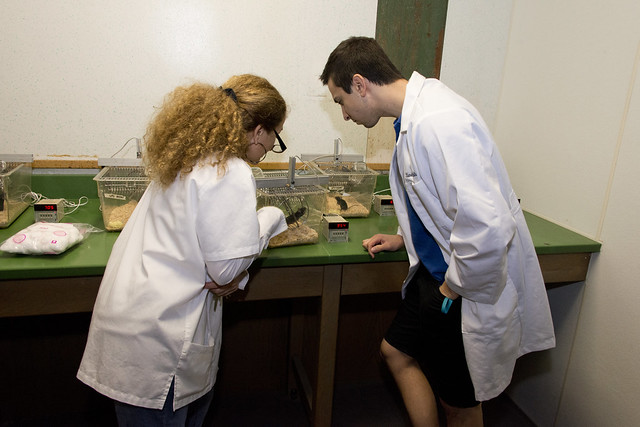Psychology Faculty Research
Robert Askew, PhD, MPH.
At the Psychometrikon lab, we aim to advance psychological, social, and medical sciences through improved instrumentation. Major projects in this lab include the development and validation of scientific measures of moral cognition, exercise overvaluation, spelling ability, and pain. To learn more please contact Professor Askew at [email protected].
Rick Medlin, PhD
Professor Medlin studies the cognitive and social development of homeschooled children. For information about current research please contact Professor Medlin at [email protected]. Professor Medlin has published many articles on homeschooling.
Chris Ferguson, PhD
The Psychotechnology Lab has several ongoing research projects examining how people interact with and respond to different forms of media including video games and social media. We are also now doing research on race, policing and violent crime. If you are a Stetson student and are interested in working in this lab, please contact Professor Ferguson at [email protected].
Michael Eskenazi, PhD
The Reading, Eye Tracking, and Individual Differences (REAiD) Lab uses eye-tracking technology to understand how people identify, learn, and process words during reading. We are working on various projects related to applied issues in language processing such as how we process novel grammatical structures and whether some grammatical rules are outdated and irrelevant. We are especially interested in how individual differences in reading skill and experiences affect linguistic processing. if you are interested in participating in these research studies or working as a research assistant in the lab, please contact Professor Eskenazi at [email protected].
Sarah L. Garcia, PhD
The Stetson Clinical Neuropsychology Lab investigates the effects of non-pharmacological interventions on cognition in a variety of medical and mental health populations. Current projects include brain stimulation, also known as tDCS, on cognition and mood; cognitive rehabilitation techniques in dementia; and the relationship between pain and cognition. If you're interested in participating in research, or in becoming a research assistant, please contact Professor Garcia at [email protected].
Danielle Lindner, PhD
In the Body Image Research Lab, Professor Lindner and her research assistants complete studies designed to better understand how people think and feel about their bodies as well as the social and cultural factors that contribute to the development of body image disturbance and disordered eating behavior. We are currently working on a couple of projects involving men's body image. Students can volunteer or earn course credit by working as a research assistant in the lab, where they can gain experience completing literature reviews, designing studies, collecting data, and analyzing data. There are often opportunities for students to present their work at national or international conferences or to assist in writing a manuscript. Students interested in working in the Body Image Research Lab should e-mail Professor Danielle Lindner at [email protected].
